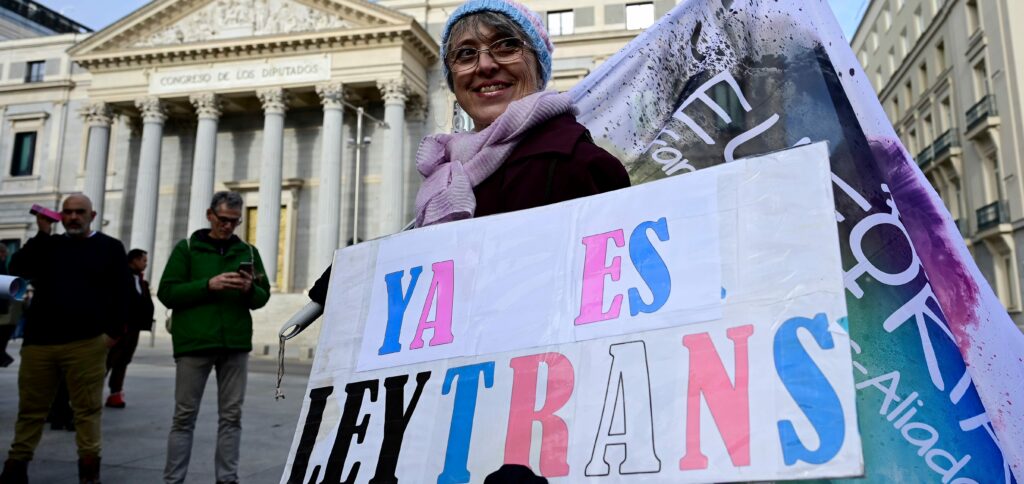The Spanish Parliament approved, in the first round, a bill that allows transgender people – who do not recognize their sex assigned at birth – make the change to their documents, from the age of 16, with a simple declaration. The Senate is expected to give its definitive approval to the rule in the coming weeks.
ADVERTISING
In Scotland, Parliament gave the green light this Thursday (22) to a law that helps the transition of trans people, now authorized from the age of 16. The new rule eliminates the requirement for a medical diagnosis to request a gender recognition certificate. In addition, it reduces the period that a person must live with the indicated gender from two years to three months, with an additional period of three months for reflection.
Still exceptional recognition
Only in 2019 did the World Health Organization (WHO) stop considering the transsexuality a mental disorder.
In some countries, administrative and judicial processes can take years and include mandatory psychiatric diagnosis, hormonal treatment, sex reassignment surgery or even sterilization.
ADVERTISING
Argentina, pioneer
In 2012, Argentina was a pioneer in authorizing gender change in civil registration with just one declaration.
In recent years, several Latin American countries have adopted similar laws, such as Uruguay, Colombia, Bolivia, Ecuador and Peru.
In Chile, the law on gender identity, which came into force at the end of 2019 after years of harsh debates, gained visibility with the Oscar-winning film “A Fantastic Woman” (2017), starring trans actress Daniela Vega.
ADVERTISING
Denmark, pioneer in Europe
In 2010, the Council of Europe approved a resolution that asked its Member States (47 in total) to guarantee the rights of trans people to obtain “official documents that reflect one’s chosen gender identity, without the prior requirement of sterilization or another medical procedure such as a sexual conversion operation or hormone therapy.”
In 2014, Denmark was the first European country to grant trans population the right to self-determination of identity. Others followed in their footsteps, such as Malta, Sweden, Ireland, Norway and Belgium.
Since 2017, France has allowed transgender people change their civil registration without “justifying it with medical treatments, surgical interventions or sterilization”, but rather through a process in the courts.
ADVERTISING
In June this year, the German government announced that it plans to introduce a bill to facilitate the official change of name and gender.
Third gender
Some nations around the world still recognize a third gender, neither masculine nor feminine.
In 2009, Pakistan became the first country to admit the existence of a third sex. In 2013, Nepal added a category transgender in citizenship certificates, a type of identity document.
ADVERTISING
Since 2013, Australia has allowed the addition of a third category to passports, so that trans people do not have to define themselves as male or female.
In 2014, the Supreme Court of India recognized a third gender. In neighboring Bangladesh, since 2018 trans people can register to vote as a third gender.
In turn, Germany legalized in 2018 a third gender on birth certificates.
In the United States, the State Department announced in October 2021 that it had issued the first American passport with an “X” in the gender field, but it was not yet a routine procedure. The expansion of this possibility to everyone was announced in March 2022, as part of a set of federal measures to simplify the administrative path of trans people e non-binary.
(To AFP)
Read also




